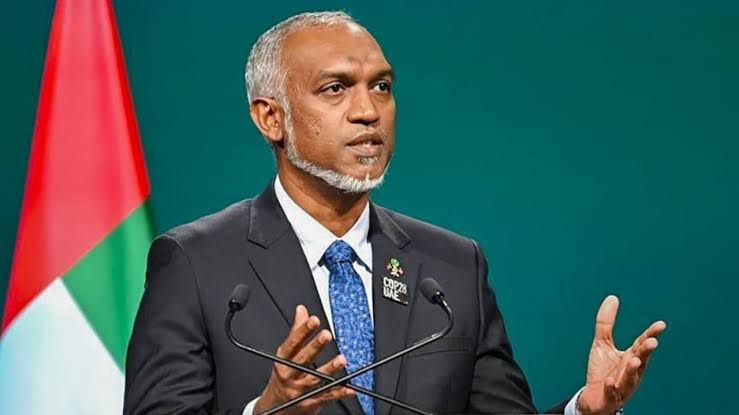In a bid to avert a looming debt crisis, the president of Maldives, Mohamed Muizzu, will slash his salary by 50% as part of a wider austerity programme targeting public sector wages, his office announced on Thursday.
The move comes as the nation grapples with severe financial challenges, prompting cuts across most government roles.
According to an official statement, Muizzu’s own salary will be reduced from 1.2 million Rufiyaa annually to 600,000 Rufiyaa ($39,087) starting next year. This pay cut is part of a broader 10% reduction in salaries across the public sector, though the president’s personal pay cut will be the largest.
A government source revealed that the president’s reduced salary will still be nearly double the average household income of 316,740 Rufiyaa, as reported by a 2016 census. Judges and lawmakers, however, will be exempted from the mandatory cuts, though Muizzu has encouraged them to voluntarily accept a 10% reduction to share in the burden.
In addition to salary reductions, Muizzu’s administration recently implemented significant layoffs, with over 225 political appointees being dismissed, including ministers and high-ranking officials. Among those sacked were seven state ministers, 43 deputy ministers, and 178 political directors, a move expected to save the country approximately $370,000 per month.
The Maldives government has repeatedly stated that its current financial troubles were “temporary.” Despite mounting concerns, the government has ruled out seeking a bailout from the International Monetary Fund (IMF), even in the face of warnings about a potential sovereign default.
The Maldives, renowned for its luxurious resorts and pristine beaches, is also becoming a focal point in regional geopolitics. China and India, the two largest lenders to the Maldives, continue to vie for influence over the nation, which comprises 1,192 coral islands spread across the Indian Ocean.
President Muizzu has expressed gratitude for China’s support, acknowledging Beijing’s “selfless assistance” in providing development funds since his election victory last year. During a recent visit to New Delhi, Indian Prime Minister Narendra Modi also pledged financial support to help stabilize the Maldivian economy.
Official data from the first quarter of 2024 revealed that the Maldives’ foreign debt stood at $3.37 billion, amounting to approximately 45% of the country’s gross domestic product. China holds about 20% of this external debt, while India accounts for just under 18%.
LEADERSHIP reports that the austerity measures were the latest in a series of economic reforms aimed at preventing a debt crisis in the small island nation, which has become heavily reliant on tourism but faces significant fiscal challenges.











